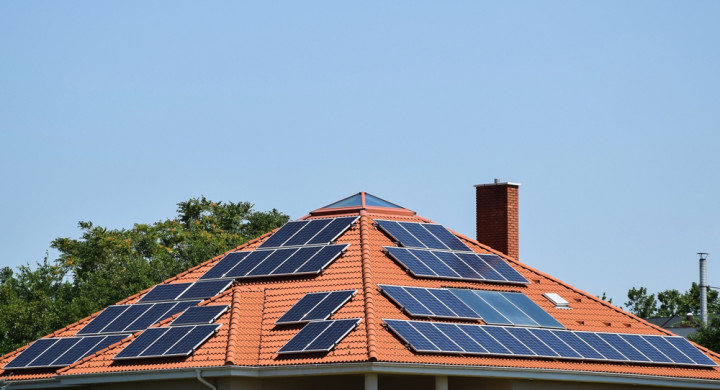Solar power is one of the most exciting new energy technologies. Even though it’s still developing, solar panels are increasingly common ways private residences get some or all of their power. But it gets more exciting. Solar technology also offers heating and cooling options, increasing the ways you can use solar to power your New Orleans home.
What Is a Photovoltaic Cell?
The first thing you need to know about solar panels is that they aren’t all the same. The term ‘solar panel’ actually refers to a wide range of solar energy-gathering technologies. The type of solar panel most people think of when imagining the technology is a photovoltaic cell.
Photovoltaic cells are the solar panels which turn the sun’s rays into electricity. This electricity is used to power your home–which can include your HVAC system, your window AC unit, or other methods of heating and cooling. The electricity generated is stored in a battery. If you have enough photovoltaic cells, you might end up generating more electricity than you need, which then goes back along the electricity grid and may result in credits on your bill, i.e. more savings for you.
What About Solar Thermal Collectors?
Solar thermal collectors are for heating water. It’s important to note that if you have electrically heated water, your photovoltaic cells will do the same job. Solar thermal collectors use the sun’s rays to generate heat, which they then apply to potable water. That water resides in a storage tank that keeps it hot, making it available for use in your home whenever you need it.
Solar air heating is done in a similar way. The sun’s heat and energy are used to heat air in a reservoir, which then goes through the HVAC system and heats your home.
How Does Solar Air Conditioning Work?
Rather than generating electricity via photovoltaic cells and using that to run your HVAC system, you can get solar technology assistance specifically for your AC. You might not have the money to install enough solar panels to power your house, or you may not live in an area where total solar power is feasible. Sometimes partial solar technology is the way to go.
Solar air conditioning works by helping the compressor (the part which cools the air in your AC) get the refrigerant gas out of your AC and into the air outside. The refrigerant absorbs heat from the air, which is how your AC manages to blow such nice, cold air throughout your house. The compressor has a lot of work to do because it has to heat the refrigerant even more before it can release the heat the refrigerant has collected.
Solar technology can heat the refrigerant before it hits the compressor, which reduces the amount of work the compressor has to do. It’s a very specific application of solar technology, but one that helps your AC run more efficiently and saves you money in electricity costs.
What Are the Tax Incentives?
Solar panels have a reputation for providing great energy efficiency and reducing carbon footprint. Unfortunately, though they’ve become more inexpensive in recent years, installing them isn’t always feasible. You can calculate your energy savings to figure out how much solar energy will offset installation costs in the long run, but there’s another way solar panels save you money: tax incentives.
Homeowners receive a 30 percent tax incentive on the cost of installing a solar thermal system or solar electric system. Louisiana offers several tax credits and exemptions for solar installation, which significantly helps offset the cost of new solar panels. In Louisiana, you can get a 50 percent rebate in tax credits if you’re a homeowner and install solar energy systems at your residence. Louisiana also offers low-interest loans for energy-saving solar installations.
Image provided by Shutterstock


